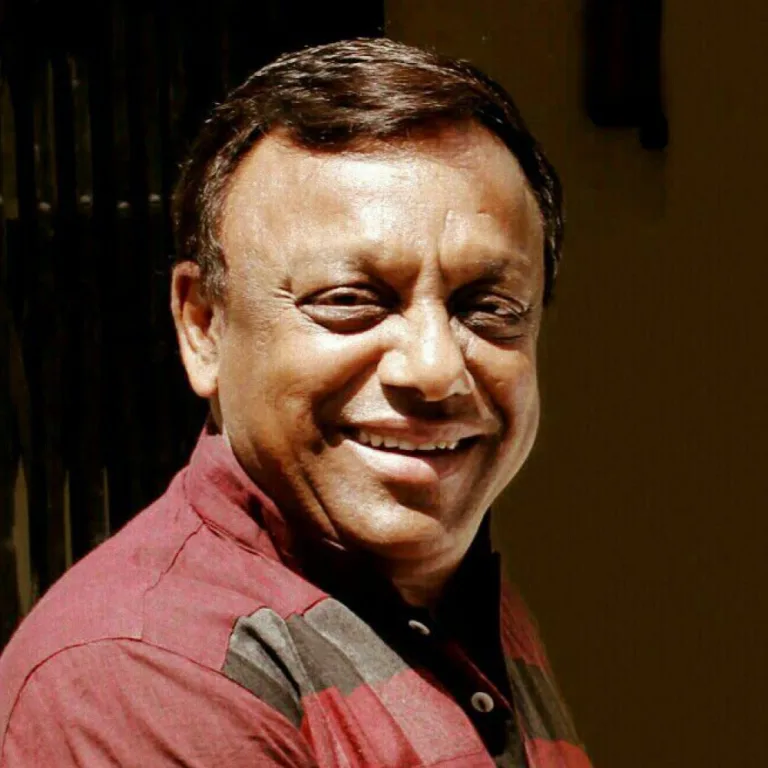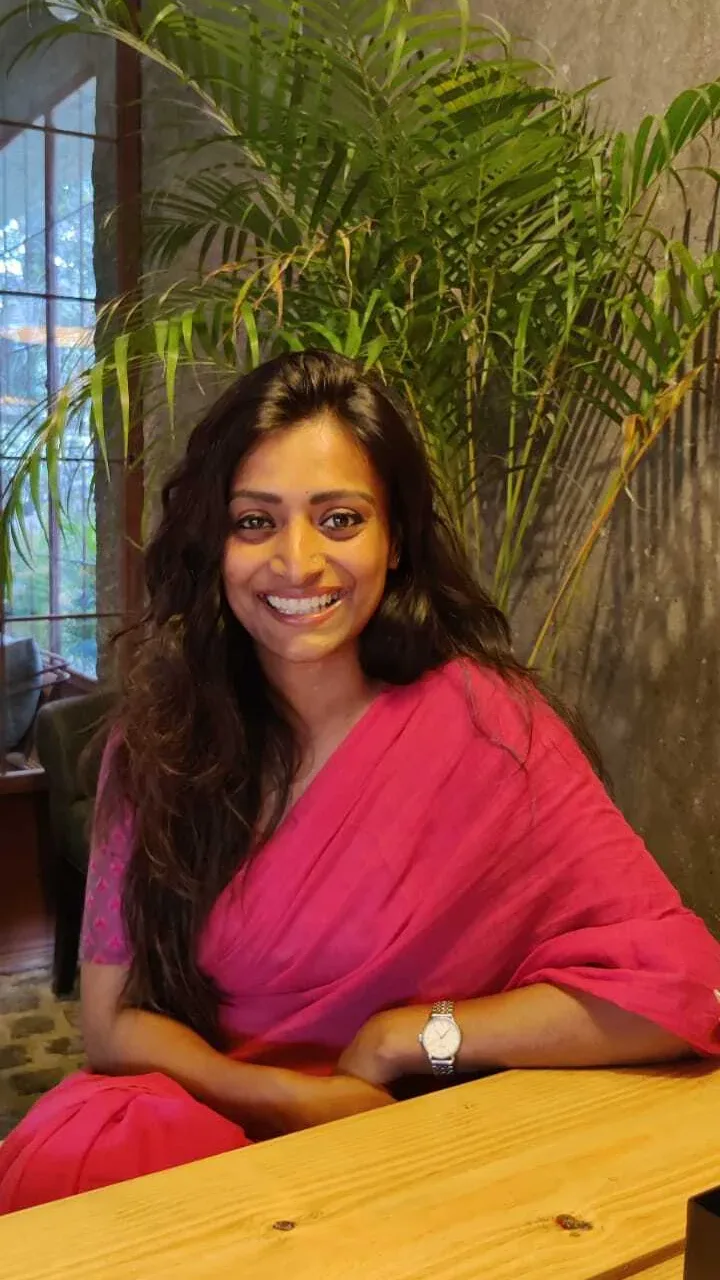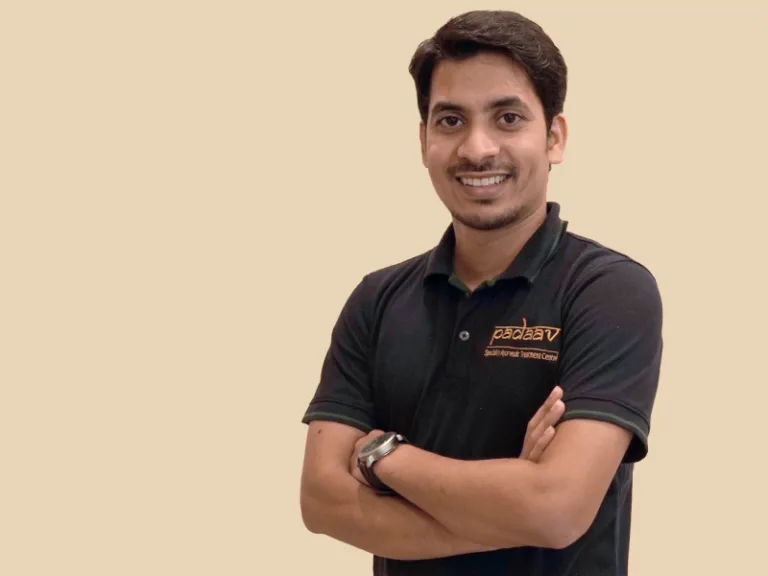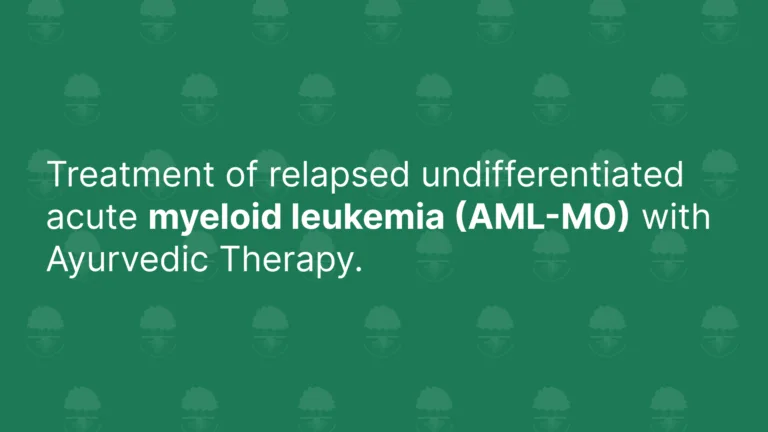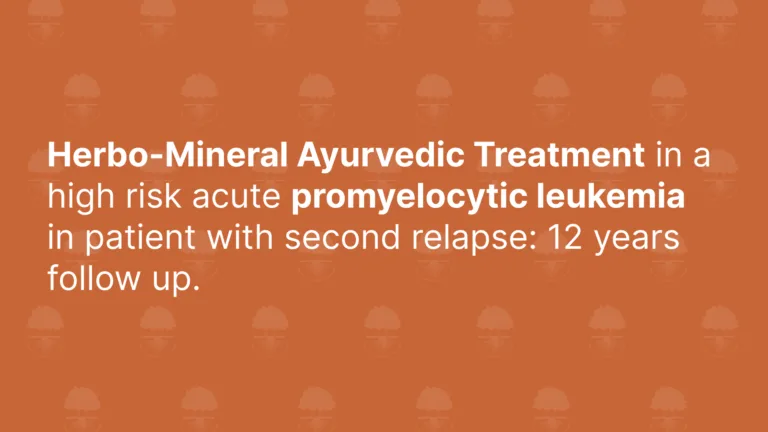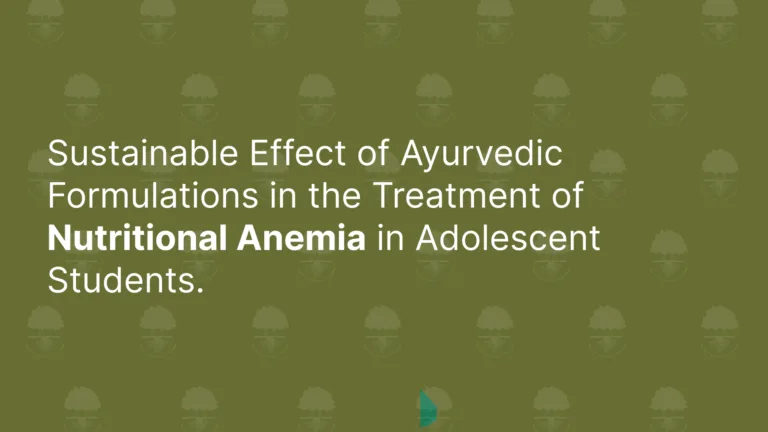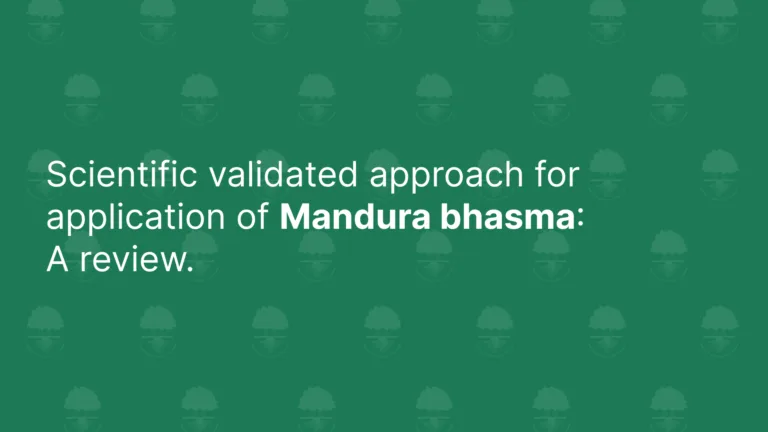98.7% Reduction in Emergency Hospitalisations*
Discover evidence-based treatment for pancreatitis at Padaav, led by Vaidya Balendu Prakash and Vaidya Shikha Prakash. Our comprehensive ATP has shown significant reductions in pancreatitis attacks (up to 93%) and hospitalisations (up to 97%). Patients often experience rapid pain relief and no disease progression. We offer holistic, personalised care for an improved quality of life.
*a 98.7% reduction was seen in patients that completed the 1 year treatment program. (n= 2109)
Understanding Pancreatitis and Its Seriousness
The pancreas, located behind your stomach, is a vital organ essential for digesting food and regulating blood sugar through hormones like insulin. Pancreatitis occurs when this crucial organ becomes inflamed, typically causing symptoms like severe abdominal pain (which may radiate to the back), nausea, and vomiting.
Pancreatitis generally manifests in two main forms:
- Acute Pancreatitis: This involves a sudden onset of inflammation. While it can range from mild discomfort to a severe, life-threatening condition, acute pancreatitis often resolves within days or weeks with appropriate care.
- Chronic Pancreatitis: This is a long-term, progressive disease characterized by persistent inflammation. Unlike acute pancreatitis, chronic pancreatitis leads to irreversible damage, scarring, and gradual loss of pancreatic function over time.
Why Pancreatitis is a Serious Condition:
While acute pancreatitis can be severe, chronic pancreatitis poses significant long-term health challenges. It is often a debilitating condition that substantially impacts a patient’s quality of life due to persistent pain and impaired digestion. Furthermore, the irreversible damage caused by chronic pancreatitis increases the risk of developing other complications, including diabetes and pancreatic cancer. Finding effective, sustainable relief, especially for chronic and recurrent forms, can be challenging, highlighting the need for comprehensive management strategies. Understanding the nature and seriousness of pancreatitis is the first step toward seeking appropriate and effective care.
“Patient recovery and well-being are my ultimate goals. Ayurveda holds immense potential, but to earn its place in the modern world, we must move beyond historical precedent. I am a strong advocate for rigorous research to understand the mechanisms behind Ayurvedic principles. Simply stating ‘it worked 5,000 years ago’ isn’t enough; we need scientific evidence to demonstrate why it works today.”
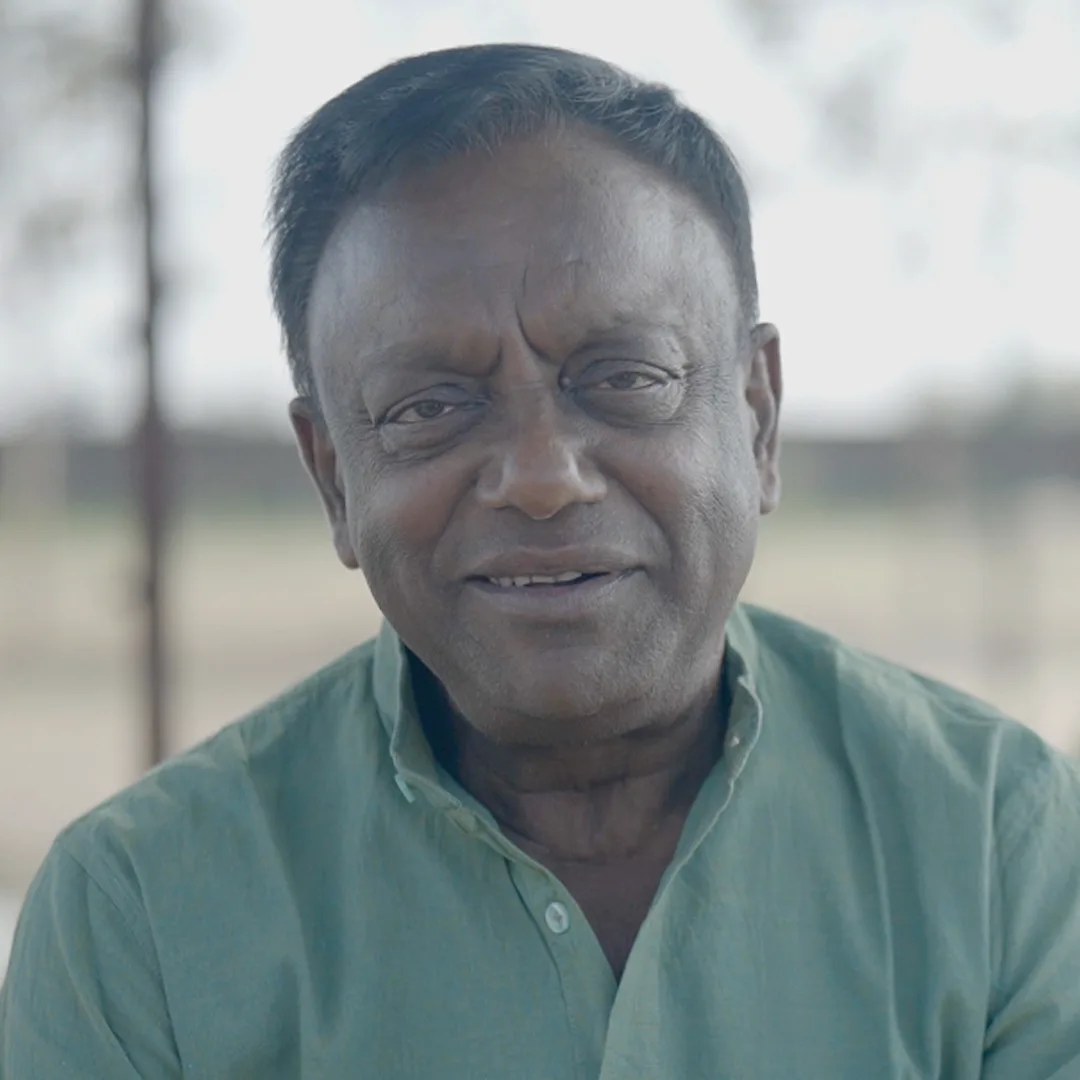
Specialized Ayurvedic Care for Pancreatitis Types
Padaav Ayurveda offers specialized Ayurvedic care for diverse pancreatitis types, including chronic (calcific, with pseudocysts), acute (necrotizing, recurrent), and complex cases. Our research-backed Ayurvedic Treatment Protocol (ATP) aims for sustainable relief. Discover our tailored approach for your condition.
The Padaav Approach: How We Treat Pancreatitis
The ATP at Padaav is a comprehensive, year-long protocol initiated with an intensive residential phase. It integrates traditional Ayurvedic principles, particularly from Rasa Shastra, with modern diagnostic approaches and a focus on scientific validation.
- The Step – To carefully evaluate your specific case of pancreatitis and determine if you are a suitable candidate for Padaav’s specialized Ayurvedic Treatment Protocol (ATP) and residential program. Our goal is to ensure our approach is the right fit for your health needs.
- What This Step Involves – The team will go through all your medical records to understand the disease, confirm the diagnosis and assess the prognosis. Based on these facts every case is evaluated and therefore admitted for the residential program.
- Blood Tests: These typically include serum amylase and lipase levels, which are often elevated during an acute pancreatitis attack and are key indicators for diagnosis. Other blood tests like Liver Function Tests, lipid profile, cancer markers, CRP, kidney function tests, Ca19.9, HbA1c, Vitamin D3, and Vitamin B12, Stool test levels may also be evaluated to understand the overall health status and identify any deficiencies. In some instances, more parameters can be evaluated to completely assess the patient’s condition.
- Other Investigations: Reports of Ultrasound (USG), Computed Tomography (CT) scans, Magnetic Resonance Cholangiopancreatography (MRCP), Endoscopic Retrograde Cholangiopancreatography (ERCP), and Endoscopic Ultrasound (EUS) are crucial for understanding the structural changes in the pancreas, identifying any complications like pseudocysts or cysts, and ruling out other conditions. Magnetic Resonance Imaging (MRI) and X-rays might also be relevant. Fluid analysis of pancreatic cysts for markers like CEA and CA-125 might also have been conducted to differentiate them.
- Expert Review & Analysis: Our team of experienced Vaidyas meticulously reviews all submitted information. We analyze the type and severity of your pancreatitis, identify any complications, assess the prognosis, and evaluate if your condition aligns with the cases typically managed effectively by our protocol.
- What this means for you – Be prepared for an in-depth discussion about your health history and current status. Ensure you bring copies of all relevant medical reports. The team will explain the treatment protocol, its duration, and answer any questions you may have. An initial online consultation may be arranged to review your case and determine suitability for the residential program
- The Step – Following acceptance for treatment, you will be admitted to Padaav’s Specialty Ayurvedic Treatment centre for a focused three-week residential program. This immersive phase allows for the strict implementation of the ATP under continuous medical supervision.
- What This Step Involves – The ATP will be introduced in the following methodology.
- Personalised Daily Routine: You will adhere to a structured daily routine encompassing specific timings for medication intake, prescribed meals, and rest
- Ayurvedic Medications: You will receive a personalised combination of Ayurvedic formulations. A cornerstone of the treatment is Amar, a herbo-mineral formulation prepared using the principles of Rasa Shastra. Other supportive Ayurvedic formulations like Narikel Lavan, Prak 20, and Rason Vati may also be prescribed based on your individual needs.
- Dietary Intervention: You will follow a meticulously planned, easily digestible diet (typically 1200-1600 or 1600-2200 calories) excluding substances known to aggravate pancreatitis, such as alcohol, caffeine, and processed foods. The focus is on a balanced intake of whole foods. The diet will be a healthy mix of fats, carbohydrates, fibre and protein.
- Ayurvedic Medications: You will receive a personalised combination of Ayurvedic formulations. A cornerstone of the treatment is Amar, a herbo-mineral formulation prepared using the principles of Rasa Shastra. Other supportive Ayurvedic formulations like Narikel Lavan, Prak 20, and Rason Vati may also be prescribed based on your individual needs.
- Lifestyle Modifications: Emphasis is placed on achieving adequate rest (around 8 hours of sleep) and reducing physical and mental stress.
- Monitoring: Your progress will be closely monitored through regular assessments and progress charts. The medical team will observe your symptomatic changes and general well-being.
- What this means for you – A structured and disciplined environment focused on initiating your healing process. You will receive comprehensive guidance on all aspects of the treatment protocol. The team will closely monitor your response to the interventions.
- The Step – Following the residential phase, you will return home and continue the personalised treatment plan for the remaining eleven months. This involves consistent adherence to the prescribed diet (Aahar), lifestyle (Vihaar), and medications (Aushadh).
- What This Step Involves – The ATP will be introduced in the following methodology:
- Aahar (Diet): You will continue to follow the dietary guidelines provided during the residential program, focusing on easily digestible, whole foods and avoiding restricted items. High protein diet, portion control, right combinations etc
- Vihaar (Lifestyle): Maintaining a regular sleep schedule, managing stress levels, and engaging in moderate physical activity as advised will be crucial. Complete mental and physical rest.
- Aushadh (Medicines): You will continue to take the prescribed Ayurvedic formulations and any other supportive medications.
- What this means for you – Consistency and adherence are paramount during this phase. The personalised nature of the treatment means the specific diet and medications are tailored to your individual needs and progress. You will need to diligently follow the provided guidelines. You will receive monthly refills of your medications via courier.
- The Step – Throughout the eleven-month home-based treatment phase, regular communication with the Padaav team is maintained, often on a daily basis via phone or email.
- What This Step Involves – You will be expected to provide updates on your symptoms, diet, and lifestyle. This continuous monitoring allows the Vaidyas to assess your progress and make necessary adjustments to your medication dosage or supportive therapies based on your individual response. You may be asked to undergo follow-up blood tests after approximately 120 days. At the end of the one-year treatment period, you will typically be called back to Padaav for a comprehensive re-evaluation, which may include physical examination, pathological tests, and repeat radiological imaging (if deemed necessary) to assess the impact of the treatment.
- What this means for you – Consistent support and guidance from the Padaav team. You will need to be proactive in communicating your condition and adhering to any changes in the treatment plan.
- The Step – Following the completion of the one-year ATP, maintaining a healthy diet and lifestyle as advised by the Vaidyas remains crucial for long-term well-being and preventing the recurrence of pancreatitis.
- What This Step Involves – The principles of Aahar and Vihaar learned during the treatment become an integral part of your daily life.
- What this means for you – You will be empowered with knowledge about managing your health through diet and lifestyle modifications.
The Padaav Advantage: Expert Ayurvedic Care for Pancreatitis
Choosing the right care for pancreatitis is crucial. Padaav Ayurveda offers a distinct advantage, rooted in decades of Ayurvedic practice and the legacy of formulating ‘Amar’ in the 1970s. Led by Padma Shri awardee Vaidya Balendu Prakash and Vaidya Shikha Prakash, our center has successfully managed over 2200 pancreatitis cases (documented 1997-2024) using our unique, research-backed Ayurvedic Treatment Protocol (ATP).
This protocol, often featuring the Amar formulation, is validated by GCP-compliant documentation, published research (including PubMed-indexed papers), and international presentations. We focus on providing complete, sustainable relief, significantly reducing attacks and hospitalizations, especially for challenging Recurrent Acute/Chronic Pancreatitis (RACP). Experience the Padaav difference – where deep Ayurvedic wisdom meets rigorous scientific validation for effective pancreatitis management.
Our Core Strengths
- Nationally Recognized Expertise: Receive care led by renowned Ayurvedic physicians, including Padma Shri awardee Vaidya Balendu Prakash (Member, American Pancreatic Association) and Vaidya Shikha Prakash, experts in Rasa Shastra and complex conditions.
- Focus on Sustainable Relief & Proven Outcomes: Choose a treatment focused on achieving complete, sustainable relief, demonstrably reducing pancreatitis attacks and hospitalizations, especially effective for challenging Recurrent Acute/Chronic Pancreatitis (RACP).
- Commitment to Transparency & Validation: Trust is built through a commitment to rigorous documentation (following Good Clinical Practice), conducting observational studies, and transparently publishing research findings in scientific journals and conferences.
- Access to Real Patient Experiences: Prospective patients can gain insights and hope by exploring the documented patient stories and testimonials available
Watch Patient Journeys to Recovery
Padaav Ayurveda offers specialized Ayurvedic care for diverse pancreatitis types, including chronic (calcific, with pseudocysts), acute (necrotizing, recurrent), and complex cases. Our research-backed Ayurvedic Treatment Protocol (ATP) aims for sustainable relief. Discover our tailored approach for your condition.
Your Role in the Treatment Process
Your active participation is essential for successful pancreatitis treatment at Padaav. Please familiarize yourself with these important guidelines covering adherence to your personalized Ayurvedic protocol (diet, lifestyle, medicines), the mandatory attendant requirement for the residential phase, and consistent engagement with follow-up care. Understanding your role helps maximize treatment effectiveness.
Understanding Your Investment in Health at Padaav
Our Ayurvedic treatment for pancreatitis at Padaav follows a structured protocol designed for effective management and sustainable relief. The treatment journey involves two distinct phases, each with associated costs:
- An initial three-week residential program at our center in Uttarakhand.
- A subsequent eleven-month period of treatment continued at your home with remote follow-up.
Phase 1: Initial 3-Week Residential Program
| Category | Room Description | 3-Week Package Cost |
|---|---|---|
| Premium Room | This is a private room offering the highest level of comfort and amenities | ₹3,37,050/- |
| Private Room Type 1 | This is a private where there are 3 beds so 2 attendants can accompany the patient | ₹2,92,110/- |
| Private Room Type 2 | This is a private where there are 2 beds, one for the patient and one for the attendant | ₹2,35,400/- |
Notes on Residential Packages:
- Inclusions: The package costs cover consultation, counseling, treatment administration, one-time initial blood investigations, prescribed Ayurvedic diet, and accommodation for the patient and one accompanying attendant. All prices are inclusive of applicable taxes.
- Exclusions: Costs do not include emergency medical treatment or vitamin supplements if required. Additionally, any in-person (offline) consultations requested after the completion of the three-week residential program are not covered by this package and will be charged separately. (Routine follow-ups for the subsequent eleven months are included via calls, mail, or WhatsApp as per the program structure).
- Attendant Requirement: As per Ayurvedic principles emphasizing the role of the attendant (paricharak), patients must attend the program with one attendant capable of providing both physical and psychological support.
- Registration & Availability: A non-refundable advance payment of ₹ 10,000/- is necessary to confirm your booking in the residential program. Please note that admission is subject to availability, and there may be a waiting period depending on occupancy. While we strive to make arrangements for critical cases, confirmation cannot be guaranteed until the time of admission.
Phase 2: Follow-Up Treatment (11 Months)
Following the intensive residential program, treatment continues at your home for the next eleven months. This phase involves adhering to the prescribed Aahar (diet), Vihaar (lifestyle), and Ausadh (medicines), including formulations like Amar if part of your personalized protocol. Regular monthly follow-ups are conducted remotely via calls, email, or WhatsApp to monitor progress.
Cost for Phase 2: The cost associated with the required medicines and remote follow-ups during these eleven months is separate from the initial residential package cost. This cost varies depending on the personalized treatment protocol prescribed for your specific condition. Details regarding the cost for this follow-up phase will be discussed with you during or upon completion of the residential program.
Leadership & Expertise at Padaav
Padaav Ayurveda offers specialized Ayurvedic care for diverse pancreatitis types, including chronic (calcific, with pseudocysts), acute (necrotizing, recurrent), and complex cases. Our research-backed Ayurvedic Treatment Protocol (ATP) aims for sustainable relief. Discover our tailored approach for your condition.
Evidence-Based Ayurveda: Padaav’s Research
Padaav Ayurveda offers specialized Ayurvedic care for diverse pancreatitis types, including chronic (calcific, with pseudocysts), acute (necrotizing, recurrent), and complex cases. Our research-backed Ayurvedic Treatment Protocol (ATP) aims for sustainable relief. Discover our tailored approach for your condition.
Patient Stories: In Their Own Words
Padaav Ayurveda offers specialized Ayurvedic care for diverse pancreatitis types, including chronic (calcific, with pseudocysts), acute (necrotizing, recurrent), and complex cases. Our research-backed Ayurvedic Treatment Protocol (ATP) aims for sustainable relief. Discover our tailored approach for your condition.
Frequently Asked Questions
We are here to solve all your queries and to answer all your questions.
What is pancreatitis?
Pancreatitis is an inflammatory process of the pancreas. It is an inflammatory disorder that can manifest as either acute or chronic.
What are the main causes of pancreatitis?
Padaav’s primary focus is on treating recurrent acute and chronic pancreatitis (RA/CP) and hereditary pancreatitis. The aetiology of this inflammatory condition majorly remains mysterious, especially in the Indian context, where the majority of RA/CP patients are non-alcoholics and non-tobacco users with no family history of the disease.
Is pancreatitis becoming more common?
Pancreatitis, in both its acute and chronic forms, is a significant and growing health challenge globally.
What are the symptoms of pancreatitis?
At the onset of Ayurvedic treatment at Padaav, patients experienced symptoms such as severe abdominal pain, vomiting, and weight loss. Testimonials also mention experiencing indigestion, and acidity, constipation. Padaav aims to provide relief from these symptoms.

